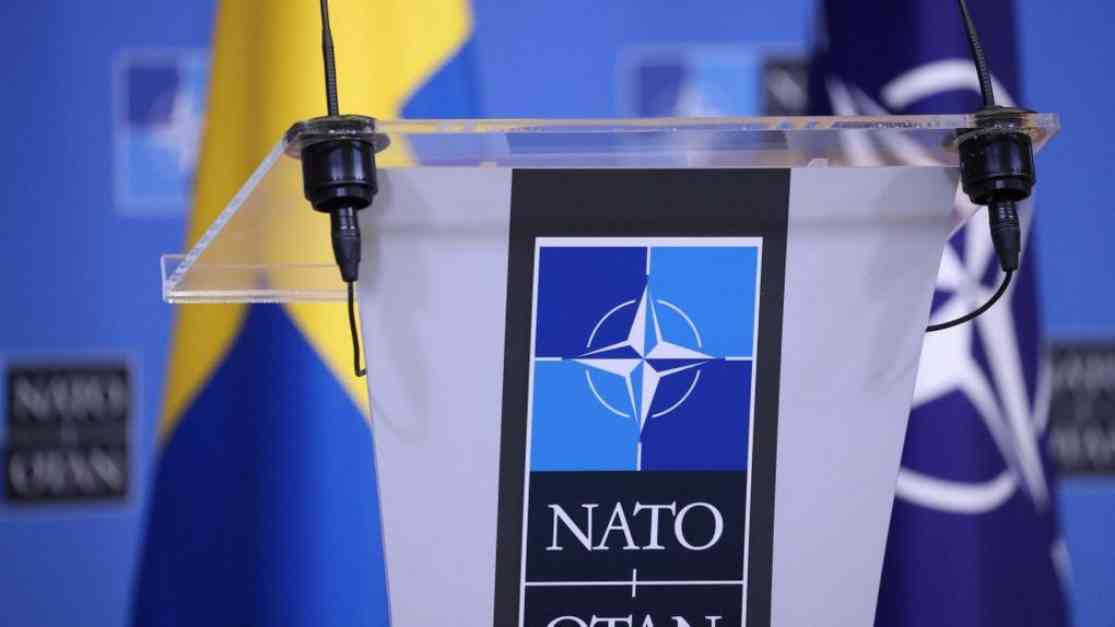European Leaders Mull Ukraine’s NATO Membership Amid Russia’s Breach of Peace Deal
European leaders are set to convene in Paris on February 17 to deliberate on the potential automatic NATO membership for Ukraine in the event of a breach of a future ceasefire by Russia, according to a recent report from The Guardian. This crucial meeting comes in the wake of President Trump’s announcement on February 12 regarding the initiation of negotiations with Moscow to bring an end to the ongoing conflict in Ukraine. Following discussions with Russian leader Vladimir Putin, Trump’s statement has sparked a flurry of criticism and raised concerns about the absence of security guarantees for Ukraine, particularly in light of US Secretary of Defense Pete Hegseth’s dismissal of Ukraine’s aspirations for NATO membership as “unrealistic.”
The prospect of a ceasefire being brokered on Putin’s terms without adequate safeguards for Ukraine has not only alarmed experts but also triggered unease among European nations, as they were not directly involved in the negotiation process. Amid mounting apprehension over the potential ramifications of the US adopting an increasingly isolationist stance, there is growing apprehension that this approach could inadvertently bolster Russia’s position. Analysts and various media outlets have begun characterizing this strategy as a significant victory for the Kremlin.
US Senators and European Leaders Rally Behind NATO Membership for Ukraine
In response to the evolving situation, some US senators have proposed a conditional NATO membership for Ukraine contingent upon Russia violating a ceasefire agreement. This proposal has garnered support from prominent European leaders, including Finnish President Alexander Stubb, who has underscored the importance of not succumbing to Russia’s ambitions of establishing spheres of influence. Stubb’s stance aligns with a broader sentiment in Europe that emphasizes the need to uphold Ukraine’s sovereignty and security in the face of external threats.
The US, for its part, has emphasized the necessity of imposing severe consequences on any party that breaches a potential peace deal—a critical element that has been conspicuously absent from previous ceasefire agreements in Ukraine dating back to 2014. Ukrainian President Volodymyr Zelenskyy has echoed these sentiments, highlighting the indispensable role of American support in ensuring comprehensive security guarantees for his country. Zelenskyy’s remarks underscore the vital role of US involvement in safeguarding Ukraine against external threats, particularly in the realm of missile defense.
Trump Administration’s Ambitious Timeline for Ukraine-Russia Ceasefire
Meanwhile, sources familiar with the ongoing negotiations have revealed that the Trump administration is working towards securing a ceasefire in Ukraine by Easter, slated for April 20, 2025. The proposed timeline for talks, set to commence in Saudi Arabia this week with senior US and Russian officials, has been described as ambitious yet potentially unrealistic by some officials. While the prospect of reaching a definitive agreement by the end of the year appears more plausible, the urgency of the situation underscores the need for swift and decisive action to bring an end to the protracted conflict in Ukraine.
As the international community grapples with the complexities of brokering a lasting peace in Ukraine, the stakes remain high for all parties involved. The delicate balance of power, the strategic imperatives of regional actors, and the enduring quest for stability in Eastern Europe underscore the critical importance of finding a sustainable resolution to the conflict. In the months ahead, the world will be watching closely as key players navigate the intricate geopolitical landscape of the region, striving to forge a path towards lasting peace and security in Ukraine.
In conclusion, the evolving dynamics of the Ukraine-Russia conflict demand a multifaceted approach that integrates diplomatic finesse, strategic foresight, and unwavering commitment to upholding the principles of international law. As European leaders deliberate on the question of Ukraine’s NATO membership and the broader implications of a potential ceasefire agreement, the need for unity, resolve, and collective action has never been more pressing. Only time will tell whether the current negotiations will yield tangible results or merely serve as a prelude to further geopolitical maneuvering in the region.

















